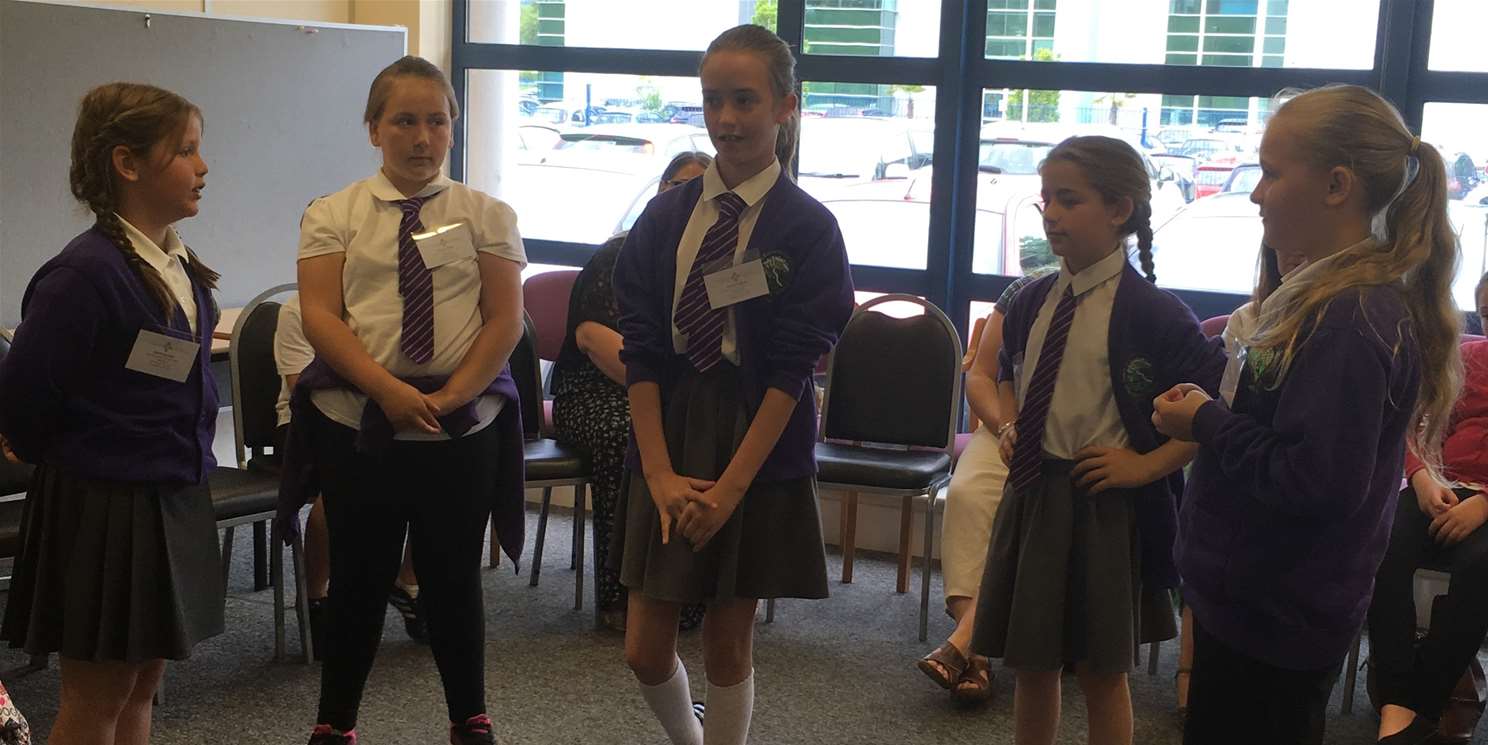RCT council, along with WRAP invited all schools within the county to attend a launch conference held in Ty Dysgu, with the aim of hearing about the impact RA could have in their schools. Each school was given the opportunity to apply to join the pilot project, with the incentive of being match funded by the council. One of the criteria, amongst many, was that a secondary school should apply with one of their feeder primaries to allow for transition work to be done and for the full effect of restorative approaches to be seen when working with pupils from the ages of 4-16/18. Four schools were successful; Ferndale Community School alongside Maerdy Primary and Bryn Celynnog Comprehensive alongside Llwyncrwn Primary.
The four schools began their restorative journey in September 2014. WRAP met with their senior leadership teams to begin training and to begin discussions about their school’s bespoke journey. Each school receives training that meets their specific needs whilst still pertaining to restorative principles. In January 2015, all four schools received their launch INSET day which was delivered to all members of staff within each school. This included all teaching staff and support staff. This is important in implementing restorative approaches in schools, as it must be consistent across all staff so that wherever a pupil turns for support, they will be dealt with in a consistent, restorative manner.
The launch INSET looked at the core principles of restorative approaches such as; what is RA, what are the myths surrounding it, the four choices window, needs, circle practice and active listening techniques. Remembering that restorative approaches has relationships at the heart of its practice, many of the activities are designed to allow relationships to be built between staff who may or may not know each other well. One thing that the INSET does well is to gently push staff outside of their comfort zones (something they expect of pupils everyday) and to allow, not just new friendships to be made, but allow for much needed thinking and reflection time.
After the initial INSET, each school was invited to send several staff on WRAP’s four-day intensive training course. This course is designed to give those participants a deeper understanding and skill level in RA so that they can be champions back in school. The expectation was not for those staff to train others, but merely show the impact that restorative techniques can have to other staff awaiting the training.
Within this year WRAP also trained many of RCT’s youth service workers who also worked in the schools, thus creating more consistency in the approach of professionals involved.




